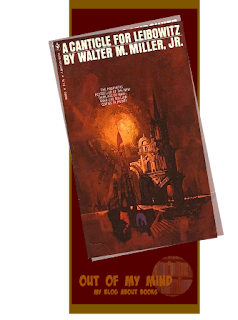 Another one of my favorite genres of books is the young adult book. I started reading the YA genre when my daughter was about twelve years old, just to read what she was reading, and I enjoyed it so much that I began reading it for my own pleasure. Today's book is a book that I picked up from the teen section of the library the other day, drawn to it for some reason. The book flaps hooked me and I just loved the concept of the book. It's written for early high school level, probably.
Another one of my favorite genres of books is the young adult book. I started reading the YA genre when my daughter was about twelve years old, just to read what she was reading, and I enjoyed it so much that I began reading it for my own pleasure. Today's book is a book that I picked up from the teen section of the library the other day, drawn to it for some reason. The book flaps hooked me and I just loved the concept of the book. It's written for early high school level, probably.Tell Me Three Things by Julie Buxbaum is a book about two teens at the same school getting to know one another across social media, one of the teens initiating the friendship online and the other not knowing who their online friend actually is, but needing a friend and confidant.
Jessie, our protag, has just lost her mother when her father, within a year and a half, marries someone he met online and he moves himself and Jessie to LA, to the VALLEY, of all places, and puts Jessie in the position of being a kid from Chicago now going to a prep school the Valley. What a freakin' nightmare. She's in desperate need for connection, so when she receives an anonymous message from someone calling themselves Someone/No one, or SN for short, she is just desperate enough to get past her fears that she is being punked and, slowly, she begins to trust SN.
As Jessie moves into her life at her high school, she experiences conflict both at home, at work, and at school and her friendship with SN becomes essential to her day with their wisdom and knowledge of the high school drama. Through work and school and life, Jessie now has three different guys in her life, any of whom, or none of them, who could be SN. She wonders and frets and lives with the unknown for most of the book. Sometimes angry that SN won't reveal themselves, sometimes going with the flow.
While one might be uncomfortable with books that rely heavily on texts, emails, and social media (I've seen it handled ham-handedly in other books), Buxbaum weaves these exchanges beautifully into the story. We begin to appreciate the supportive, humorous, affectionate SN and we begin to see the "real SN" in the daily messages. The witty banter is quite engaging and the supportive messages are meaningful and touching.
I enjoyed this quick and easy read.
I'm sure I could be critical of some aspects of the book, the standard trope characters for one, Jessie's almost complete inability to have compassion or insight about other people in her life for another, but instead I choose to enjoy it and to read it as the feel good book it is intended to be.
One of my favorite passages from the book comes near the very end when Jessie and her father are having a reconnect moment after a fairly long period of disconnect.
Beats making smoothies, I hope?" My dad's wearing his plastic name tag, his name printed under the words How may I help you? The way it dangles on a steel clip makes me feel tender toward him, as if he came in here with a milk mustache.
Here are three things I liked about this book: 1) the adorable and meaningful email exchanges between Jessie and SN, 2) guessing who SN would be, and 3) thinking about who I would cast as each character...as you do. Overall, I give this book seven stars for the feel-good quality of it as well as for the authentic voice of Jessie and SN.



































